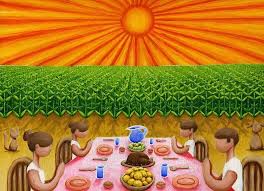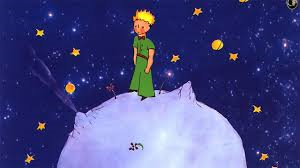
Will We Always Have Our Daily Bread?
Emily Triantaphyllis, a second daughter to my spouse and me since she became one of my daughter’s best childhood friends, has co-produced the award-winning documentary, Seeds of Time, which is available on Netflix. With beautiful photography and stimulating dialogue, it tells the story of world agriculture’s struggle to preserve seed diversity.
Why should I care about seed diversity? Because it’s critical to the sustainability of life as we know it. And combined with the problem of global warming, the lack of diversity could become perilous sooner rather than later.
But this isn’t a film that adds to the long list of critical things to worry about. It lays out the problem but spends much of its time focusing on the work of Cary Fowler, an American agriculturalist who tells the film’s story and is among those desperately trying to amass a cache of the world’s seeds before they become extinct.
Between Us and Starvation?
“We tend to imagine apocalypse coming in the form of a bomb, an asteroid, or a tsunami,” writes John Seabrook in a New Yorker article about Fowler’s work, “but should a catastrophe strike one of the world’s major crops Fowler and his fellow seed bankers may be all that stand between us and widespread starvation.”
I’ve traveled in countries that have a considerable amount of hunger, but I myself have never been hungry. Yet I often think about the possibility of famine when praying “Give us this day our daily bread” in the “Our Father.”
Many of us who pray that prayer probably give the phrase little thought. Or we dismiss its literal meaning. “It’s not about food,” we may think, “but about “spiritual nourishment.” But do we cling to that meaning because we take food so for granted?
I would guess that most of us, in fact, seldom consider the possibility of famine. If you live in Iowa, like me, or many rural areas in America, you are accustomed to seeing, year after year, thousands of acres of bountiful corn and soybeans, which, with wheat are the mainstay of our food production. “How could that ever change?” we might ask. Among other things, the film shows how.
But what does this all have to do with the search for God?
A Change of Heart
As I’ve written, faith isn’t just a matter of believing but of how we think and act. And a skeptic’s search for God isn’t just a matter of the head but of the heart. Besides an intellectual search, it requires a change of heart, conversion – as gradual as it may be – from Godlessness to faith. And faith shows in how we live.
The letter of James in the Christian Bible, written for early Jewish converts to Christianity, is emphatic on the subject. “You can no more show me your works apart from your faith than I can show you my faith apart from my works,” writes the author, according to The Message translation. “Faith and works, works and faith, fit together hand in glove.”
At the risk of repetition, I can’t touch on the subject of “our daily bread” without referring to Pope Francis’ 2015 encyclical Laudato Si. Meaning “Praise to you, Lord,” Laudato Si is from the canticle of St. Francis of Assisi, reminding us, says the pope, “that our common home is like a sister with whom we share our life and a beautiful mother who opens her arms to embrace us.”
“No Expertise”
The pope has been criticized by many people, including many American politicians, for writing about climate change, a subject about which he has “no expertise. He should stick to religion,” they say.
But for the pope, and the millions of us who agree with him, caring for creation is fundamental to our understanding of our relationship to God as creator, to one another and to creation. In other words, it is fundamental to faith, so we should support efforts like those working to preserve seed diversity.
This isn’t just a Catholic thing, of course. Many religious leaders have expressed deep concern and have offered valuable reflections on these issues. The pope’s encyclical, in fact, refers to statements by Bartholomew, the Eastern Orthodox Patriarch of Constantinople.
“He asks us to replace consumption with sacrifice, greed with generosity, wastefulness with a spirit of sharing,” says the pope before quoting Bartholomew, who promotes an asceticism that ‘entails learning to give, and not simply to give up. It is a way of loving, of moving gradually away from what I want to what God’s world needs. It is liberation from fear, greed and compulsion.’”




